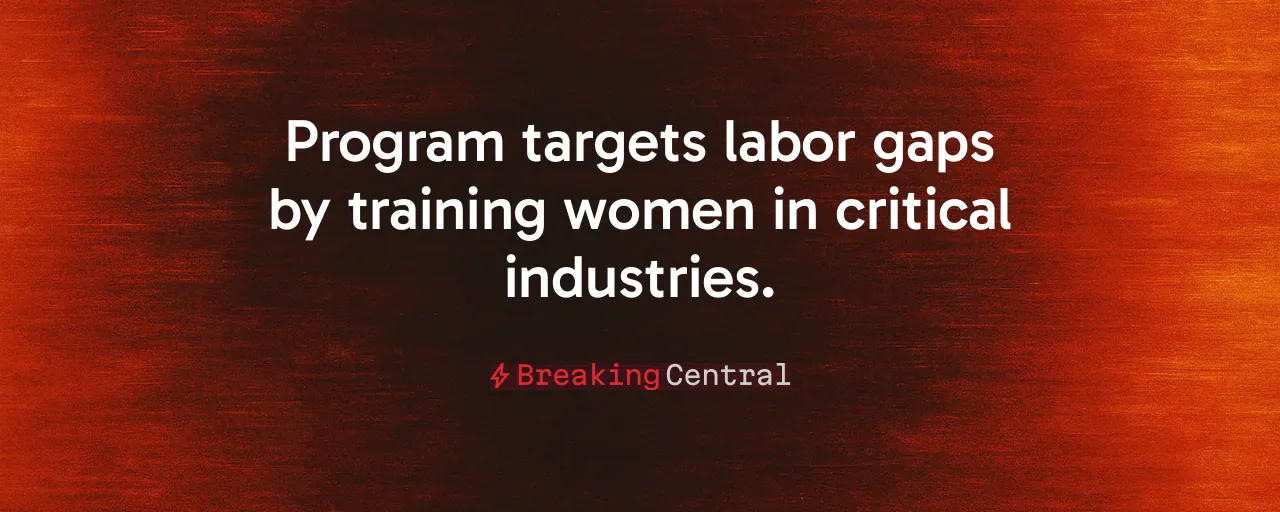A Bold Step for Women in the Workforce
The U.S. Department of Labor's recent announcement of $5 million in Women in Apprenticeship and Nontraditional Occupations grants marks a pivotal moment. These funds, aimed at boosting women's participation in fields like construction, manufacturing, and cybersecurity, align with President Trump's ambitious goal of registering one million new apprentices. The initiative promises to open doors for women seeking stable, high-paying careers in industries hungry for skilled workers.
This move comes after a rigorous review of federal grants to ensure taxpayer dollars deliver measurable results. By focusing on apprenticeships, the administration seeks to address labor shortages while empowering women to thrive in roles traditionally dominated by men. The grants, administered by the Women's Bureau and Employment and Training Administration, support community organizations that recruit, train, and retain women in these high-demand sectors.
A key aspect of this effort is its emphasis on accountability. The revamped WANTO grants prioritize job placements and wage gains, focusing on tangible results rather than vague diversity metrics. This shift reflects a commitment to practical outcomes, ensuring women gain the skills and opportunities needed to succeed in a competitive economy.
Tackling Labor Shortages With Precision
America faces a critical shortage of skilled workers in industries vital to national growth. Construction, manufacturing, and cybersecurity firms report thousands of unfilled positions, hampering projects tied to infrastructure and technology. The Department of Labor's data shows 145,000 new apprentices have joined programs since early 2025, a testament to the administration's focus on workforce development.
Women, who make up just 14 percent of registered apprentices, represent an untapped resource. By targeting them for training in high-growth fields, the WANTO program addresses this gap directly. Community-based organizations receiving these grants will provide tailored support, from pre-apprenticeship training to job placement services, ensuring women are equipped to fill these roles.
The economic stakes are high. Skilled trades offer median wages significantly above those of non-apprentice peers, with completers often earning family-sustaining incomes. By expanding women's access to these opportunities, the program boosts individual livelihoods and strengthens the broader economy.
Learning From Past Missteps
The WANTO program, authorized in 1992, has long aimed to increase women's presence in nontraditional occupations. However, earlier iterations faced criticism for prioritizing ideological goals over tangible results. Some grants, laden with diversity and inclusion language, failed to deliver clear job placement outcomes, raising concerns about efficiency and accountability.
In May 2025, the Department of Labor paused several grants to realign them with workforce priorities. This decision, though controversial, prompted a necessary overhaul. The revised 2025 grants eliminate ambiguous metrics, requiring recipients to demonstrate concrete achievements, such as apprenticeship completions and employment rates. This focus ensures taxpayer funds are used effectively.
Historical data supports this approach. Studies show that programs emphasizing mentorship and employer partnerships yield higher completion rates for women. By adopting these evidence-based practices, the administration aims to maximize the program's impact while avoiding the pitfalls of past efforts.
Empowering Women Through Opportunity
At its core, the WANTO initiative is about expanding opportunity. Women entering apprenticeships gain access to hands-on training and wages during their programs, providing an alternative to the debt often incurred in traditional education. Upon completion, they secure jobs with median exit wages far surpassing those of non-apprentice peers, offering a clear path to financial stability.
Community organizations play a vital role in this process. By offering services like skills training and career counseling, they help women overcome barriers to entry in male-dominated fields. The grants also encourage partnerships with employers, ensuring training aligns with industry needs and leads to sustainable employment.
This approach resonates with the administration's broader economic vision. By prioritizing merit-based selection and industry-driven training, the program empowers women to compete on equal footing, fostering workplaces where skill and dedication define success.
A Model for Responsible Governance
The realignment of WANTO grants reflects a broader commitment to responsible stewardship of public funds. By tying funding to measurable outcomes, the Department of Labor ensures that every dollar spent advances national priorities. This model improves upon past programs that duplicated efforts or lacked clear objectives, which burdened taxpayers without delivering results.
The initiative also balances targeted support with universal goals. While focused on women, it contributes to the larger aim of expanding apprenticeships for all Americans, aligning with efforts to revitalize manufacturing and infrastructure. This dual focus maximizes impact, addressing specific workforce gaps while fostering widespread economic growth.
Looking Ahead With Confidence
The $5 million in WANTO grants represents a strategic investment in America's future. By equipping women with the skills to excel in high-demand industries, the program addresses labor shortages, reduces reliance on public assistance, and drives economic prosperity. Its emphasis on accountability ensures that these funds will deliver lasting benefits.
Challenges remain, including the need to sustain employer engagement and monitor program outcomes. The administration's track record, with 145,000 new apprentices already registered, inspires confidence. As community organizations implement these grants, they will pave the way for more women to enter skilled trades, strengthening families and communities.
Ultimately, this initiative underscores a timeless principle: opportunity, backed by hard work and clear goals, can transform lives. By championing women in apprenticeships, the nation takes a decisive step toward a more prosperous, self-reliant future.
